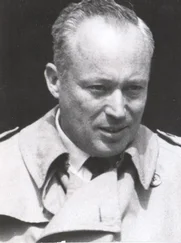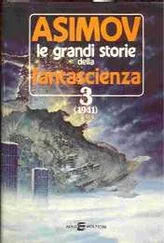Armageddon - Leon Uris
Здесь есть возможность читать онлайн «Armageddon - Leon Uris» весь текст электронной книги совершенно бесплатно (целиком полную версию без сокращений). В некоторых случаях можно слушать аудио, скачать через торрент в формате fb2 и присутствует краткое содержание. Жанр: Старинная литература, на английском языке. Описание произведения, (предисловие) а так же отзывы посетителей доступны на портале библиотеки ЛибКат.
- Название:Leon Uris
- Автор:
- Жанр:
- Год:неизвестен
- ISBN:нет данных
- Рейтинг книги:4 / 5. Голосов: 1
-
Избранное:Добавить в избранное
- Отзывы:
-
Ваша оценка:
- 80
- 1
- 2
- 3
- 4
- 5
Leon Uris: краткое содержание, описание и аннотация
Предлагаем к чтению аннотацию, описание, краткое содержание или предисловие (зависит от того, что написал сам автор книги «Leon Uris»). Если вы не нашли необходимую информацию о книге — напишите в комментариях, мы постараемся отыскать её.
Leon Uris — читать онлайн бесплатно полную книгу (весь текст) целиком
Ниже представлен текст книги, разбитый по страницам. Система сохранения места последней прочитанной страницы, позволяет с удобством читать онлайн бесплатно книгу «Leon Uris», без необходимости каждый раз заново искать на чём Вы остановились. Поставьте закладку, и сможете в любой момент перейти на страницу, на которой закончили чтение.
Интервал:
Закладка:
Globemasters and other new transports came to be used in flying special loads of heavy and bulky machinery. They brought in a dozen new generators for the Western Sector power plant.
Multimillion candlepower, high-intensity lights were installed extending from the center line of the Tempelhof runway through the St. Thomas Cemetery. EVEN THE DEAD CANNOT SLEEP IN PEACE FROM THE AMERICAN AGGRESSION, cried People’s Radio.
Superb new beacons and ranges lined the corridors; radar control became absolute; ground-controlled approaches in Berlin gave a promise that this was the miracle to beat ... General winter.
An army of transportation on the ground kept the rhythm of movement from mines and ports and depots and railheads and marshaling yards to the ready lines at the air bases in uninterrupted tempo.
New tie-down straps, new weight charts, new communication systems ... loading crews could empty a ten-ton trailer into a Skymaster in twenty minutes. In Berlin, unloading crews could unload ten tons in fourteen minutes.
A direct coal line ran from the Ruhr mines to the sacking plants at Hanau to the air bases at Celle and Fassberg. Mobile weather and operations trucks now briefed the pilots at planeside to cut down turn-around time.
Mobile canteens fed them at planeside; mobile maintenance trucks cured minor ills; turn-around time in Berlin was whittled to a mere thirty-two minutes from touch down through unloading to takeoff.
The immense weather-gathering data centers funneled in data and weather forecasts were changed every half hour. At Gatow in Berlin a method of using the canals to carry the coal by barge to the power plant cut out trucks and saved thousands of gallons of gasoline.
At Great Falls in Montana, MATS laid out an exact duplicate of the Berlin corridors where new crews were trained. Skymasters were loaded exactly as they would be at Fassberg, Rhein/Main, Y 80, Celle. They flew the Montana countryside along beacons and ranges duplicating those in Germany. They landed by GCA around beacons and at glide angles that matched Tempelhof, Gatow, and Tegel in every detail.
On Air Force Day in 1948 the Combined Airlift Task Force set down 6800 tons of coal in Berlin. The next day a special Lift of shoes, blankets, and warm clothing was flown in. Fifteen thousand children were flown out by the British to foster homes in the zones.
There were tears and smiles at Tempelhof. The people of Berlin showered the flyers with gifts that ranged from family heirlooms to trinkets made by school children.
As the first tests of winter were upon them, the American President announced that sixty more Skymasters were coming to Germany! The might of the American nation and the audacious British fortitude had been molded into the most magnificent use of the military in a time of peace.
It rolled now with unstoppable momentum from the engine build-up plants in Texas and California;
from the Materiel Centers around America;
by the Sealift, Marine X;
by the engine Lift;
by the assembly lines of the factories;
by the energy and ingenuity at Erding and Burtonwood and Hanau;
by the raw courage and the skill of the flyers;
by the sleepless hours and labor in bad light and cold of the mechanics and laborers.
As the Gooney Birds were retired one by one from the Lift the beat ... beat ... beat ... of the giant metronome that Hiram Stonebraker envisioned had been created with the hands of selfless dedication.
Chapter Thirty-one December 2, 1948
BERLINERS AWAKENED BY CANDLELIGHT IN icy hovels. The first snows of winter floated down on long shivering lines of voters waiting at the polls. With the Soviet Union boycotting the election, the Democratic Party won a majority in the Western Sector. The first act of the new Assembly was to vote Ulrich Falkenstein as Oberburgermeister of West Berlin.
The United States, Britain, and France then resumed a three-power Kommandatura for the Western boroughs. Among their first duties was to ascertain, with the new Magistrat, how much coal could be rationed to the people. Stocks were at a perilous new low and winter was going to make greater demands.
It was then announced to the Berliners that they would be rationed twenty-five pounds of coal per family for the winter. Ulrich Falkenstein appealed to the Kommandatura to allow them once again to put the forests to the ax to augment this sparse allotment and it was agreed.
Hanna Kirchner, now speaking for the Berlin housewives, told her old comrade that the beloved trees should be spared and taken only as a final desperation.
“Hanna,” he said, “trees can grow again in the same place. But if we leave Berlin, we shall never grow here again.”
The last of the birches and pines and lindens of once proud forests were felled and People’s Radio mocked, “The last act of Western vandalism is to destroy Berlin’s watershed and beauty.” Meanwhile, at the town of Helmstedt in the British Zone, long lines of coal trains waited in hope for an act of Soviet humanity to allow them to clear and go to Berlin. The trains grew white with snow and rusted in silence.
The defiance in Berlin continued to grow.
Brigadier General Neal Hazzard announced that Americans would help establish a new university in their sector. As thousands of students and faculty broke out of their academic prison in the Soviet Sector, the Free University of Berlin was born and took its first tottering steps in classes held in a hundred damaged, patched-up buildings around the borough of Steglitz.
From the moment of the first Airlift death, Neal Hazzard forbade social contact with the Russians. The breach between the two cities widened on other lines as the Berlin Symphony was forbidden to play on the other side of the Gate and all cultural contact melted.
The Russian prodding never ceased. A threat to cut the American phone lines to the zone was countered by an American promise to cut Soviet phone lines.
Soldiers on both sides became touchy and a sudden battle nearly erupted when Marshal Popov was hauled down for speeding through the American sector and overzealous Russian guards became threatening.
The Soviet Union seemed obsessed with the building of a War Memorial Cemetery to their dead in the Battle of Berlin in Treptower Park. It was not understood how this could endear them to the Berliners, even of Wöhlman’s ilk. A grotesque ode to death was being imposed upon a fallen enemy. First, the pink marble from Hitler’s demolished Chancellory was taken to the place and great plaques and monuments bearing Stalin’s words, histories of battles, great metal wreaths and statues depicting the agony of Russian heroism were ordered.
In this odd battle of wills, many of the bronze castings were ordered from West Germany. Neal Hazzard played upon the Soviet mania for the project by holding up delivery of the castings until everything was paid for in Western currency.
Counter-Intelligence reported that many of the Soviet Command were leaving. One by one, members of the Russian staff failed to show up at normal public functions. A new crop of officers appeared on the scene. And then it was confirmed that V. V. Azov had disappeared!
A week after Azov vanished, the opera box belonging to General Nikolai Trepovitch was empty at a performance of Aïda. Three days later a small five-line box on the last page of the Red Army publication announced that Marshal Popov would assume General Trepovitch’s duties in addition to his own.
As the West continued to meet the challenge of winter head on and the temper of the Berliners turned to pure iron, Popov ordered more Yak fighter planes into the corridor. They buzzed dangerously close to the Skymasters and British Yorks. Antiaircraft fire was apt to commence in the corridors close to the stream of planes without prior warning. Target sleeves were towed into the paths of incoming blocs.... But the Sky Bridge did not waver.
Читать дальшеИнтервал:
Закладка:
Похожие книги на «Leon Uris»
Представляем Вашему вниманию похожие книги на «Leon Uris» списком для выбора. Мы отобрали схожую по названию и смыслу литературу в надежде предоставить читателям больше вариантов отыскать новые, интересные, ещё непрочитанные произведения.
Обсуждение, отзывы о книге «Leon Uris» и просто собственные мнения читателей. Оставьте ваши комментарии, напишите, что Вы думаете о произведении, его смысле или главных героях. Укажите что конкретно понравилось, а что нет, и почему Вы так считаете.











